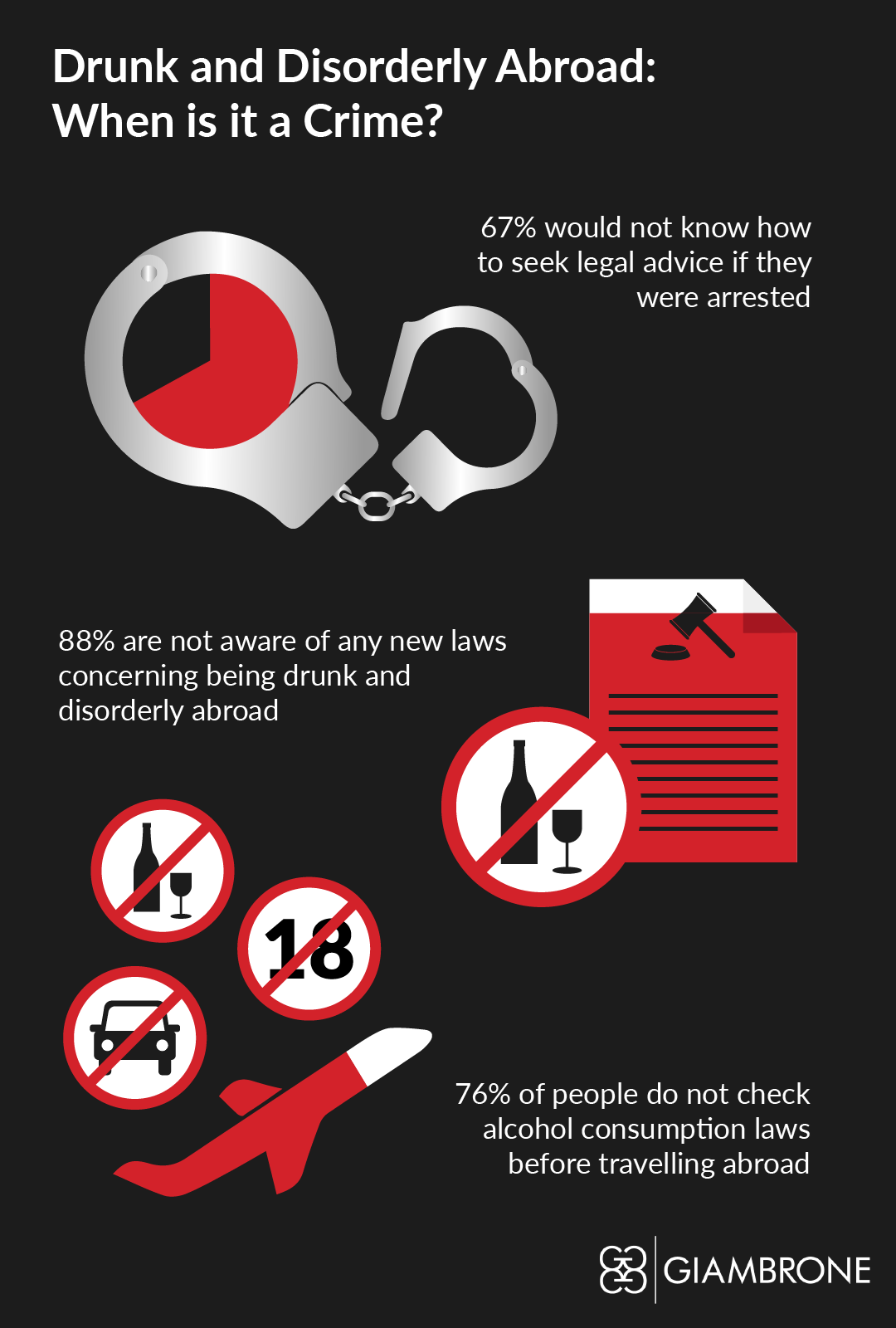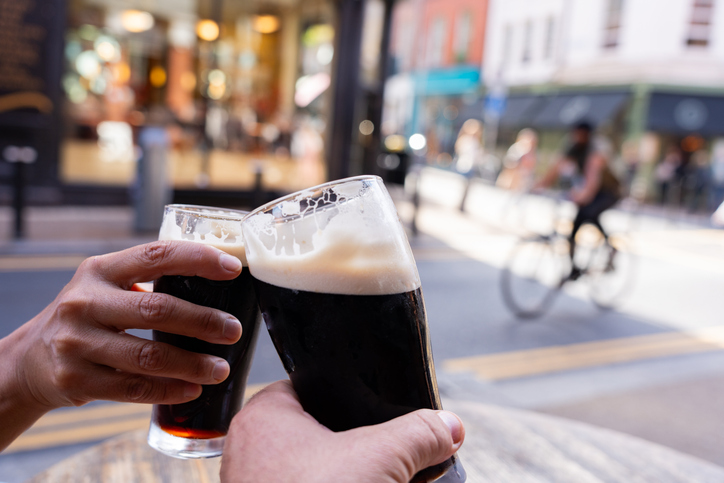x
Our website uses cookies. By continuing to use the site, you agree to our use of these cookies. To learn more about how we use the cookies and how you can manage them, please see our cookies policy.
When we go abroad for a relaxing holiday, we rarely plan to become so drunk and disorderly that we end up in a foreign goal. However, in certain circumstances this can happen, especially if a person is unaware of the law within a certain country. In our recent survey (July 2024) 53% of respondents were not aware of the legal consequences of being drunk and disorderly abroad, particularly when in countries like Spain. Tourist hotspots in Spain such as the Balearic Islands are constantly updating their laws to curb unruly behaviour in the streets but what can happen if you are disturbing the peace abroad?
Our guide will look at the laws surrounding public drinking in Europe countries, particularly Spain, as well as what to do if you are arrested for being drunk and disorderly. We will also discuss the effect on your criminal record, who you should contact if you find yourself in trouble abroad, and how our lawyers at Giambrone and Partners can help.
Click on the links below to jump to that section:
Discover the laws when drunk and disorderly abroad
Here is what you need to know if you are ever arrested for being intoxicated in another country
See how an arrest abroad for being dunk can affect your criminal record
There are various authorities you can contact if you are arrested abroad
Here is how we can assist

Different countries in Europe present different laws for drinking alcohol. Spain’s Balearic Islands, for example, announced in May 2024 they were introducing tougher laws on drinking in the street and party boats to stop unruly behaviour. People caught drinking alcohol in the street will be fined between €500 and €1500, all of which will be counted and submitted to the relevant embassies. Party boats that were picking up and dropping off passengers were banned in 2020, now amendment will prevent them from coming closer than one nautical mile of the designated areas.
In 2020, Spain also banned the consumption of alcohol on the street and shops cannot sell alcohol late at night to customers. Anyone found to be breaking these rules could be fined up to €3000. Other crimes associated with drinking in Europe include:
You can find out more about the laws in certain European countries here.

Drunk and disorderly offences in Europe usually only result in a fine or possible a night in a cell. However, you can be arrested if being drunk leads to unfavourable behaviour, such as violence and aggression. Arrests can be quite common in tourist-heavy party areas. In our recent survey, 20% of respondents said they had witnessed an arrest due to drunken behaviour abroad.
Anti-social behaviour and failure to cooperate with local police can also result in your arrest. If you have been arrested in a country such as Spain, you cannot be held for longer than 72 hours, after which you should either be released or be put before a judge. You should make sure you have your ID such as your passport to hand when venturing out abroad against the possibility of being arrested.
Once you have been arrested, you can request a to return to the UK in legal processes need to be taken. You should aim to seek legal advice as soon as possible if you are arrested from multi-lingual and multi-jurisdictional lawyers.
If you are arrested and charged with being drunk and disorderly, this charge will usually appear on your criminal record, so it is important to understand the alcohol consumption laws in the country you are visiting.
Drunk and disorderly conduct is typically considered a minor offence, often classified as a misdemeanour or a summary offence and you may not get a criminal record if it is a first-time offence. However, a criminal record may result if your drunken state leads to violent or antisocial behaviour. Your case could easily escalate from a fine to a formal charge or assault if things become heated.
Different European countries have different legal systems and thresholds for what constitutes a criminal record. For example, some countries may have systems that allow for the expungement or sealing of records for minor offences after a certain period. A criminal record, even for a minor offence, can have wide implications for travel, particularly to countries with strict entry requirements and also employment may be affected, especially in roles requiring background checks.

Who you contact first after being arrested is entirely your choice, but it is advised that you seek legal advice as soon as possible. In our recent survey, 38% of respondents said that they would contact family and friends, 30% would contact the consulate or embassy and only 9% would contact a lawyer. It is important to contact your loved ones, especially if you are abroad with them, to inform them of your whereabouts. However, once this is done, contact a lawyer immediately if you face charges.
A Spanish speaking lawyer can contact the consulate or embassy on your behalf if necessary, and help cross any language barriers upon your arrest. They can also help translate documents, and explain your legal rights to you. You can find out more about being arrested in Spain here.
Our Spanish lawyers here at Giambrone and Partners are multijurisdictional and multilingual, with a broad scope of knowledge concerning Spanish law. English speaking Spanish lawyers can help you with any communication issues, and take the language barrier away for all correspondence. Our lawyers have years of experience in Spanish civil and criminal law, and can help you navigate the complexities of your case with ease.
To find out more, or to request a free consultation, get in touch with a member of our team today.